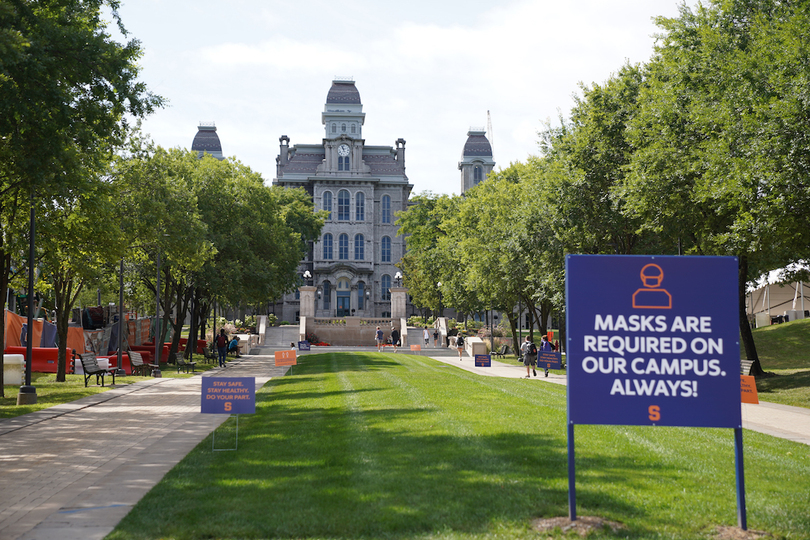Professor researches antibody as possible treatment for COVID-19

The National Science Foundation awarded Patteson and professor Jennifer Schwarz a $196,000 grant to pursue the project. Emily Steinberger | Photo Editor
The Daily Orange is a nonprofit newsroom that receives no funding from Syracuse University. Consider donating today to support our mission.
A Syracuse University professor is conducting research into a possible treatment to combat coronavirus.
Alison Patteson, an assistant professor of physics, is leading a team researching the connections between the COVID-19 virus and pritumumab, a naturally occurring antibody, which has been used to inhibit cancer and tumor growth. Patteson and other colleagues are testing whether the antibody blocks SARS-CoV-2, the virus responsible for COVID-19, from entering cells.
“Evidence has been found that the antibody does block the uptake to viral particles,” Patteson said.
The National Science Foundation awarded Patteson and professor Jennifer Schwarz a $196,000 grant to pursue the project, according to a press release.
Patteson’s team began by focusing on the biomechanics of vimentin, a protein that protects the cell against damage, Patteson said. She believes that the virus is attaching itself to vimentin and gaining access to the cell.
Patteson and her team receive materials for their research from Nascent Biotech, a biotech company that has previously worked on cancer treatments.
As the project proceeds, the team may begin testing a possible drug to combat the virus on mice, Patteson said. If these trials prove successful, the project may advance to human trials.
There are two main options for combatting COVID-19, Patteson said: a vaccine or an antiviral drug. This could include a nasal spray that would block the uptake of the virus, she said.
Depending on the progress of their research, Patteson said her team may begin collaborating with other labs.
“We’re also in collaboration with students on campus, in Portland, as well as people at the University of Pennsylvania,” Patteson said.





